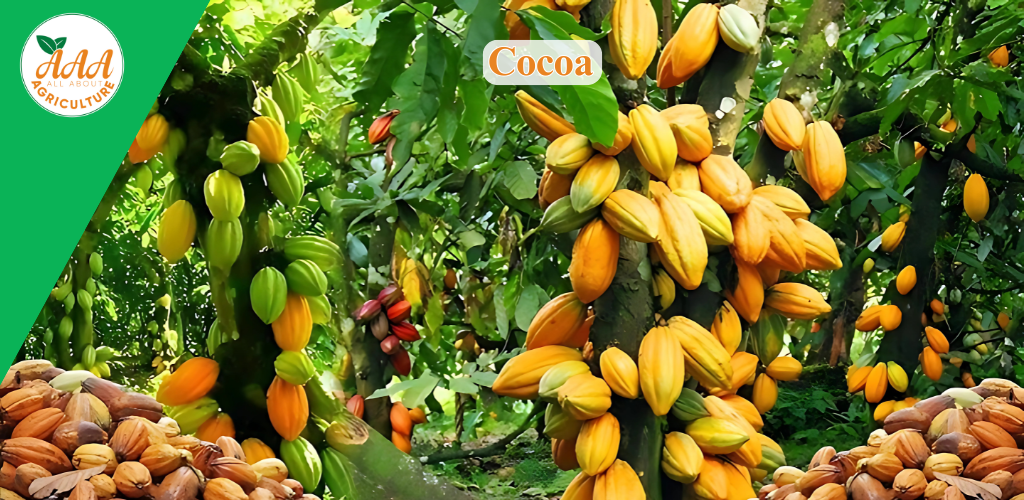Cocoa Production Technology
Cocoa Production Technology

Cocoa, the key ingredient in chocolate, thrives with precision farming, climate-smart techniques, and sustainable practices. Modern cocoa production technology enhances yield, bean quality, and environmental sustainability, ensuring better profitability for farmers.
Ideal Climate & Soil Conditions
Temperature: Best suited for 21°C to 30°C. Extreme heat above 32°C or cold below 15°C affects pod formation.
Rainfall: Requires 1,500–2,500 mm annually, with a humid climate for proper growth.
Shade Requirement: 30-40% shade cover improves growth and prevents sunburn.
Soil: Prefers well-drained, deep loamy soil with a pH of 5.5 to 7.0.
Seed Selection & Nursery Management
Hybrid & disease-resistant varieties ensure high yields.
Shade-grown cocoa protects against excessive sunlight.
Automated irrigation systems enhance seedling growth.
Land Preparation & Plantation Establishment
Terracing & contour planting prevent soil erosion in hilly areas.
Cover crops & organic compost improve soil fertility.
Plant Spacing: 3m x 3m or 3m x 4m for better root development.
Smart Irrigation & Water Management
Drip & sprinkler irrigation for water-efficient farming.
Mulching & rainwater harvesting conserve moisture and improve soil structure.
Fertilization & Nutrient Management
NPK Application:
- Nitrogen (N): Supports leaf and pod development.
- Phosphorus (P): Strengthens roots and flowering.
- Potassium (K): Enhances bean quality.
Organic fertilizers & bio-fertilizers improve soil microbiology.
Pest & Disease Control
Major threats: Cocoa Swollen Shoot Virus (CSSV), Black Pod Disease, Mirids (Capsids).
Integrated Pest Management (IPM):
Harvesting & Post-Harvest Processing
Harvesting Time: 5-6 months after flowering, when pods turn yellow or orange.
Processing Methods:
- Fermentation (5-7 days) – Enhances flavor & removes bitterness.
- Drying (7-10 days, under sunlight or solar dryers) – Reduces moisture to 6-8%.
- Sorting & grading for export-quality beans.